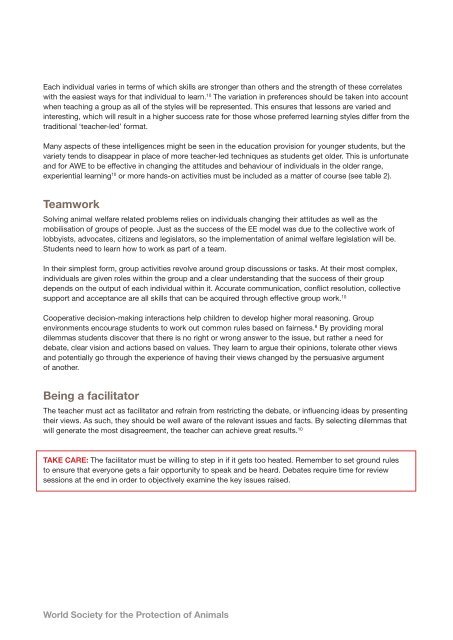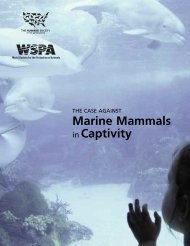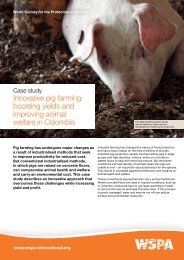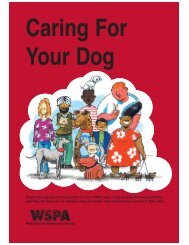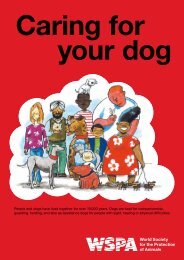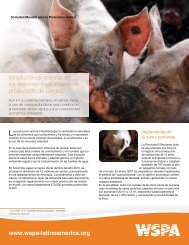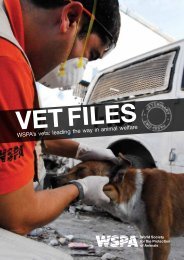WSPA - First Concepts: for teachers
WSPA - First Concepts: for teachers
WSPA - First Concepts: for teachers
Create successful ePaper yourself
Turn your PDF publications into a flip-book with our unique Google optimized e-Paper software.
Each individual varies in terms of which skills are stronger than others and the strength of these correlateswith the easiest ways <strong>for</strong> that individual to learn. 10 The variation in preferences should be taken into accountwhen teaching a group as all of the styles will be represented. This ensures that lessons are varied andinteresting, which will result in a higher success rate <strong>for</strong> those whose preferred learning styles differ from thetraditional ‘teacher-led’ <strong>for</strong>mat.Many aspects of these intelligences might be seen in the education provision <strong>for</strong> younger students, but thevariety tends to disappear in place of more teacher-led techniques as students get older. This is un<strong>for</strong>tunateand <strong>for</strong> AWE to be effective in changing the attitudes and behaviour of individuals in the older range,experiential learning 10 or more hands-on activities must be included as a matter of course (see table 2).TeamworkSolving animal welfare related problems relies on individuals changing their attitudes as well as themobilisation of groups of people. Just as the success of the EE model was due to the collective work oflobbyists, advocates, citizens and legislators, so the implementation of animal welfare legislation will be.Students need to learn how to work as part of a team.In their simplest <strong>for</strong>m, group activities revolve around group discussions or tasks. At their most complex,individuals are given roles within the group and a clear understanding that the success of their groupdepends on the output of each individual within it. Accurate communication, conflict resolution, collectivesupport and acceptance are all skills that can be acquired through effective group work. 10Cooperative decision-making interactions help children to develop higher moral reasoning. Groupenvironments encourage students to work out common rules based on fairness. 8 By providing moraldilemmas students discover that there is no right or wrong answer to the issue, but rather a need <strong>for</strong>debate, clear vision and actions based on values. They learn to argue their opinions, tolerate other viewsand potentially go through the experience of having their views changed by the persuasive argumentof another.Being a facilitatorThe teacher must act as facilitator and refrain from restricting the debate, or influencing ideas by presentingtheir views. As such, they should be well aware of the relevant issues and facts. By selecting dilemmas thatwill generate the most disagreement, the teacher can achieve great results. 10Take Care: The facilitator must be willing to step in if it gets too heated. Remember to set ground rulesto ensure that everyone gets a fair opportunity to speak and be heard. Debates require time <strong>for</strong> reviewsessions at the end in order to objectively examine the key issues raised.World Society <strong>for</strong> the Protection of Animals


